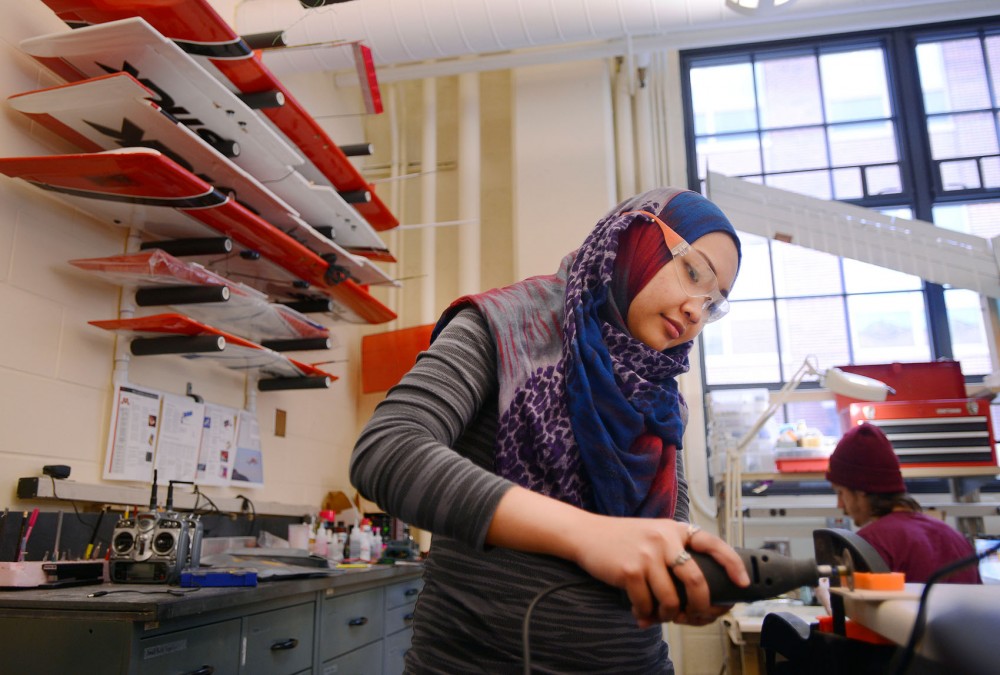Soaring over local fields to collect research data, unmanned aircraft vehicles operated by University of Minnesota students and faculty members are entangled in drone debates at the Capitol, leaving some researchers concerned.
State leaders are set to restrict drone activity this legislative session, citing privacy concerns. But some University researchers who use the unmanned aircraft say they use them strictly for academic reasons, so they shouldn’t be subject to the proposed limitations.
Rep. John Lesch, DFL-St. Paul, is sponsoring legislation that would prohibit government entities from using a drone unless they receive court permission. That permission would be granted based on the vehicle’s purpose in collecting information.
Aerospace engineering and mechanics associate professor Demoz Gebre, who is also a member of the campus Unmanned Aerial Vehicle Research Group, said at a committee hearing earlier this month that the bill would infringe on studies because it would make it more challenging to get legal operating permission.
“The way the bill was written, it would prevent us from using them for research and teaching,” he said.
After hearing concerns from University researchers and others, Lesch amended the bill to allow agencies to operate the aircraft for non-law enforcement purposes. Still, the process to use the aircraft would be extensive, and it has drawn criticism from some in the University
community.
If Lesch’s bill passes, University researchers and others would likely be required to obtain a search warrant for any drone activity. They would also need to outline data collection information if they plan to use public areas.
Contrary to popular opinion, drones aren’t always used to gather private information, Gebre said, and many of the aircraft are studied as micro-version models to determine how larger aircraft could run more efficiently and safely.
“We have not done a very good job of communicating to the public at large that there are multiple uses for [unmanned aircraft],” he said. “Privacy is a big issue. We agree on that one.”
Brian Taylor, Unmanned Aerial Vehicle lab director, said misguided conversations regarding drones stem from an incorrect perception that they’re used only in war.
“It’s becoming an issue that has high visibility these days, so I think that’s part of what’s going on,” Gebre said.
The recently proposed legislation would potentially affect many University departments where drones are used or may be used in the future, like the Department of Computer Science and Engineering and the College of Food, Agricultural and Natural Resource Sciences, Gebre said.
He said the Unmanned Aerial Vehicle Research Group, which is partially funded by grants from NASA and the U.S. Department of Homeland Security, is currently working on a joint grant request with CFANS to study using drones for precision crop dusting.
State legislators introduced more than nine bills similar to Lesch’s this session. Other proposals focus more on restricting law enforcement officials from gathering data by using unmanned aircraft, like the bill authored by Rep. Brian Johnson, R-Cambridge, which requires the agencies to obtain search warrants.
Nine states have enacted drone measures, while 23 others are currently mulling similar legislation to Minnesota’s.
Laws need to be crafted carefully, Gebre said, so they don’t throttle positive social developments or hinder possible productive uses of drones for businesses, education and research.

















